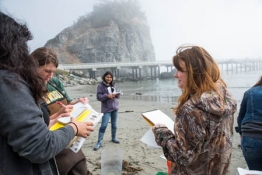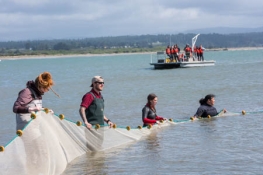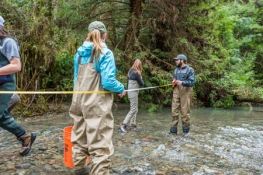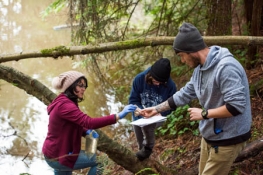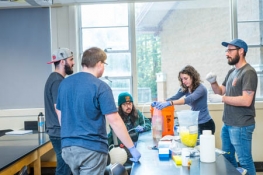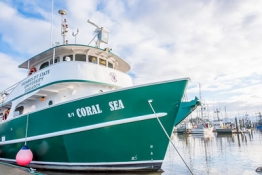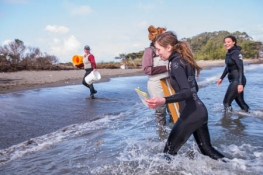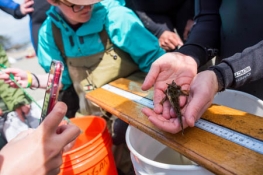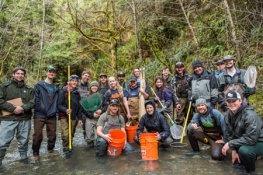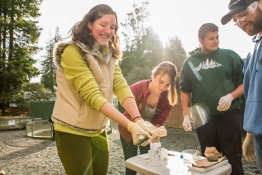Cal Poly Humboldt’s Department of Fisheries Biology Makes Strong Presence at the 2024 American Fisheries Society Meeting in Honolulu
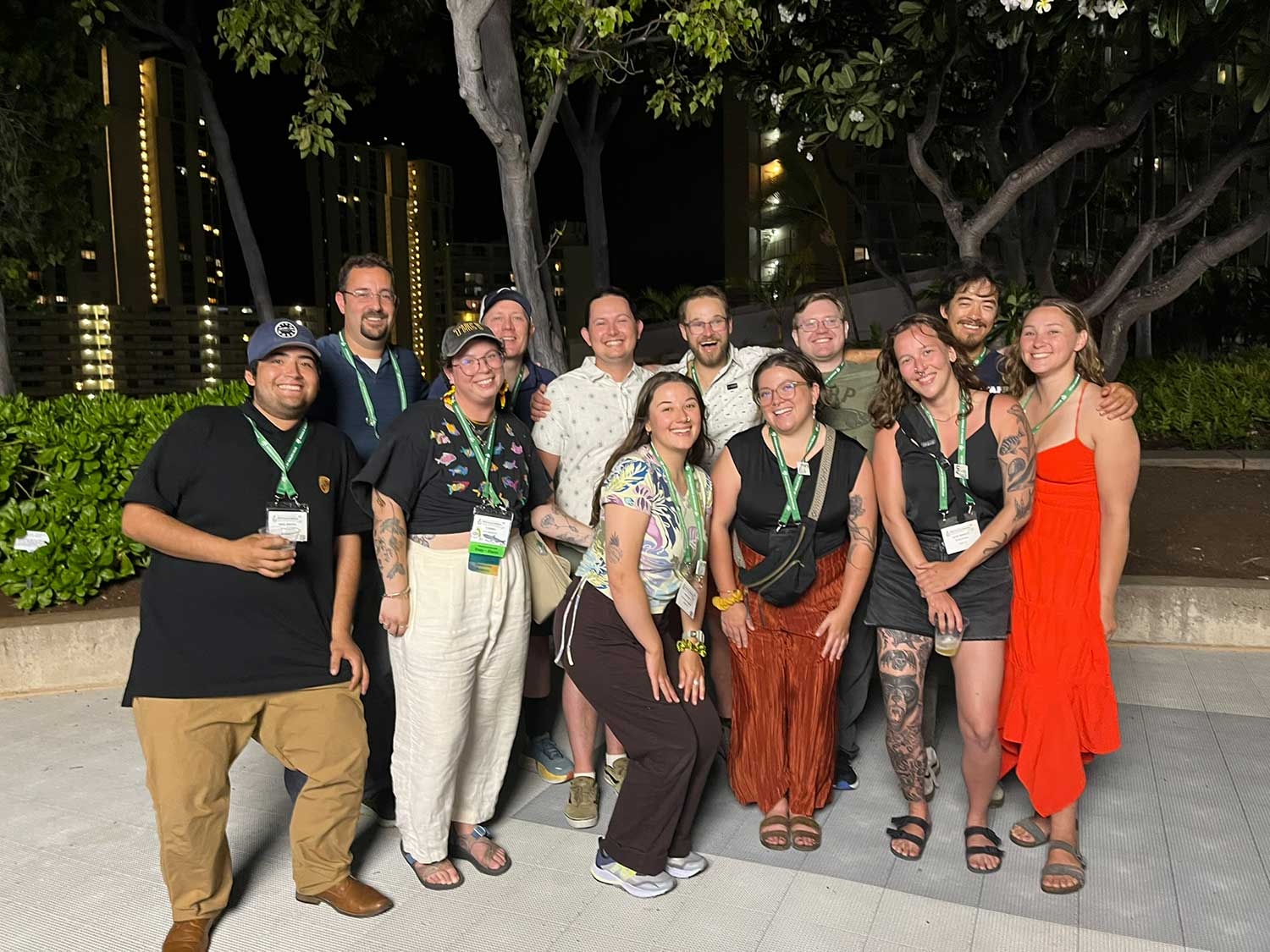
Honolulu, Hawaii - September 15-19, 2024 – Sixteen students and faculty from Cal Poly Humboldt’s Department of Fisheries Biology recently participated in the American Fisheries Society (AFS) annual meeting, held in Honolulu, Hawaii. The event brought together more than 2,000 attendees from across the globe to exchange knowledge, discuss new research, and foster collaborations in the field of fisheries science.
Throughout the five-day conference, Cal Poly Humboldt participants attended a wide range of presentations and workshops, gaining insights into the latest developments in fisheries biology, management, and conservation. Attendees had valuable opportunities to network with experts, exchange ideas, and build professional connections, furthering their academic and professional growth.
Cal Poly Humboldt was proudly represented with active participation in the conference, delivering 10 oral presentations and posters. The university’s faculty were notably involved, chairing a symposium titled "Interweaving Traditional Ecological Knowledge with Genetic/Genomic Approaches for Fisheries Conservation and Management" and contributing to numerous other sessions.
During the event, the department also hosted a special social gathering for current and past students, faculty, and friends of the program. This Humboldt social provided a space to reconnect, celebrate shared achievements, and strengthen the sense of community within the fisheries biology field.
The registration and travel costs to attend the conference were almost exclusively enabled through grants and contracts for scholarly research obtained through the Sponsored Programs Foundation. This illustrates one of the many benefits for students of maintaining scholarly activities through active grants and contracts, providing unique opportunities for professional development and participation in major scientific events.
Faculty and Research Affiliate Contributions:
- Andre Buchheister: Contributed to 5 presentations, including Estimating Environmental DNA Shedding Rate in Rainbow Trout Using Time-Varying Decay Rates.
- Andrew Kinziger: Presented 12 talks and posters, including Contemporary Evolution of Genetic Structure in Introduced Klamath Smallscale Suckers.
- Jose Marin Jarrin: Delivered 6 presentations, including Improving climate resilience in far northern California Tribal fisheries via cooperative research and capacity building.
- Michelle Schuiteman presented 3 talks and posters, including Co-produced data describes the fish community of the lower Klamath River estuary before and after dam removal and Evidence for two newly-recorded octopus species in the Galapagos and reclassification of Octopus oculifer
- Nic Som: Participated in 4 presentations, including a key focus on Dam Removal and Ecological Transformation on the Klamath River.
- Darren Ward: Provided critical insights through collaboration on 2 presentations.
Student Contributions:
- Olivia Boebertiz, Rachel Hein, Daniel Montoya: Empowering Tribal Stewardship: Tribal-Led Initiatives in Fisheries Research Along Northern California’s Coast.
- Claire Stuart: Growth Patterns of Quillback Rockfish in California and the Northeast Pacific Ocean.
- Johnathon Richardson: Seasonal Analysis of Humboldt Bay Fish Community Using Environmental DNA Metabarcoding.
- James Whelan: Just Keep Swimming: Survival of Upper Klamath Basin Juvenile Chinook Salmon Outmigration.
- Gavin Bandy: Using Tracers to Characterize Environmental DNA Transport and Inform Detections of Fishes.
- Alex Juan: Evaluating the Trojan Y Chromosome Strategy for the Eradication of Invasive Pikeminnow.
- Alec Bauer: Tribal Capacity Building: eDNA Metabarcoding to Characterize Northern California Fish Diversity.
- Z Zenobia: Night smelt (Spirinchus starksi) Status in N. CA Using Biological Parameters and Traditional Ecological Knowledge
The Department of Fisheries Biology at Cal Poly Humboldt continues to make significant strides in research and education, as highlighted by this year’s exceptional participation at the AFS meeting. The department is proud of its students and faculty for their contributions and looks forward to future opportunities to further fisheries science and conservation.
For more information on the Department of Fisheries Biology at Cal Poly Humboldt and their work, please visit our website: Fisheries Biology

